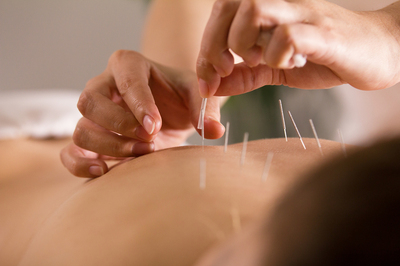 Hundreds of Americans die from opioid overdoses every day, according to the CDC. Countless others suffer from life-destroying addiction. For many of these people, the road to addiction starts with seemingly harmless prescription pain medication and progresses to substance abuse. But it doesn’t have to be that way. Several other pain management approaches offer relief without the threat of addiction.
Hundreds of Americans die from opioid overdoses every day, according to the CDC. Countless others suffer from life-destroying addiction. For many of these people, the road to addiction starts with seemingly harmless prescription pain medication and progresses to substance abuse. But it doesn’t have to be that way. Several other pain management approaches offer relief without the threat of addiction.
Here’s a closer look at six potential options for minimizing opioid use while managing pain.
1. Non-Opioid Pain Medications
Many non-opioid pain medications are available either over the counter or by prescription. These include nonsteroidal anti-inflammatory painkillers like Motrin, Excedrin, and Advil, as well as acetaminophen, such as Tylenol and Panadol. While the latter aren’t anti-inflammatories, they are effective for managing mild to moderate pain. Acetaminophen can also be used in combination with anti-inflammatories.
In fact, while many people assume that opioids are more effective than non-opioid analgesics, research published in JAMA indicates that there was no difference in pain reduction between ibuprofen-acetaminophen and opioid-acetaminophen combinations.
2. Physical Therapy
In addition to helping people recover from an injury or surgery, physical therapy can play a key role in chronic pain management. Says University of Utah Health physical therapist Tamara Dangerfield, MPT, “It is a much better option than painkillers in many circumstances, particularly with longstanding musculoskeletal conditions. Movement-based therapies become more effective for pain control the more they are practiced, and the side effects include improved mood, blood pressure, weight control, bone density, endurance, strength, and sleep.”
Physical therapy comprises many different types of treatment, including everything from massage to electrical stimulation. “Just because something doesn’t work the first time or even if it worsens pain, that does not mean that a person has failed physical therapy. There are infinite possibilities to modify a person’s program to keep it comfortable and keep making progress,” Dangerfield continues.
3. Acupuncture
A form of integrative medicine, acupuncture consists of pricking the skin or tissues with needles. This treatment originated in ancient China and is used today all over the world for pain relief as well as to treat many physical, mental and emotional ailments.
Asserts the NIH’s National Center for Complementary and Integrative Health, “Results from a number of studies suggest that acupuncture may help ease types of pain that are often chronic such as low-back pain, neck pain, and osteoarthritis/knee pain. It also may help reduce the frequency of tension headaches and prevent migraine headaches. Therefore, acupuncture appears to be a reasonable option for people with chronic pain to consider.”
4. Surgery
Opioids treat the symptom, not the ailment. In some cases, abnormalities in the body may be triggering the pain. Treating the underlying cause, such as through surgery, can offer pain relief. Worried about opioid prescription meds after surgery? Recent research published in STAT indicates that opioid-free pain relief after surgery is also a possibility thanks to the development of new medications.
 5. Nerve Blocks
5. Nerve Blocks
Nerve blocks are a type of pain management in which a nerve-numbing medication is injected into a specific area of the body. Says the American Society of Anesthesiologists of the potential of nerve blocks for pain management, “if you are having a muscle spasm or nerve pain, injections with local anesthetics or other medications can help short-circuit your pain.”
6. Yoga
Yoga made headlines last year when it was determined that gentle yoga and exercise can ease chronic pain better than drugs. Not only that, but research also suggests that yoga can reduce substance use as well as substance-related cravings. In fact, because of yoga’s results, doctors are now endorsing yoga over opioids for the treatment of lower back pain. Advises American College of Physicians President Nitin S. Damle, MD, MS, MACP, in recommending yoga as a first-line pain management therapy, “Physicians should consider opioids as a last option for treatment and only in patients who have failed other therapies, as they are associated with substantial harms, including the risk of addiction or accidental overdose.”
These six are just the start. Promising high-tech pain relief treatments continue to emerge, such as radio waves, electrical signals, spinal cord stimulation, pain pumps, and more. The key takeaway? Given the many dangers associated with opioids for pain management, exploring non-opioid pain management options is a worthwhile, and potentially life-saving, pursuit.
For the millions of people already suffering from opioid addiction, there’s still hope. Contact us at leading St. Louis area substance abuse treatment center Harris House to learn more about our addiction recovery programs.

 5. Nerve Blocks
5. Nerve Blocks





